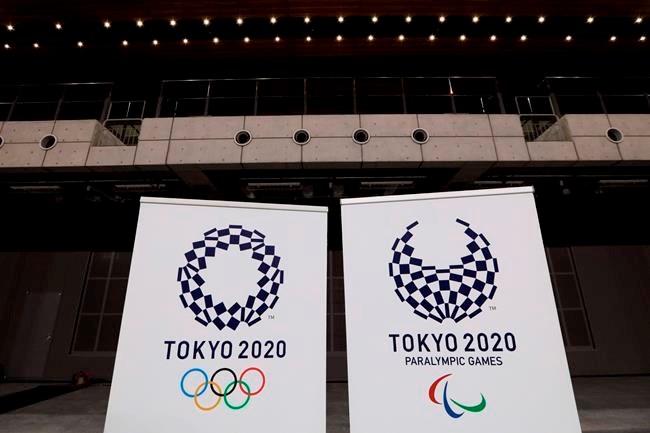TOKYO — A test event for the Tokyo Olympics scheduled for later this month that would have involved some non-Japanese athletes is being revamped because of fear of the spreading virus from China.
It's now limited to only Japanese athletes with the Olympics just over five months away.
The two-day test event opens at the new Ariake Arena on Feb. 28 and is relatively obscure — a Paralympic test for boccia, a precision ball sport similar to bocce and related to lawn bowling. It's the first of 19 remaining test events before the Olympics are to open on July 24.
They will be watched closely, as will the start of the torch relay on March 26 in Fukushima, a prefecture devastated nine years ago by an earthquake, tsunami and the meltdown of three nuclear reactors.
The test events may reveal what effect the spreading virus is having on Olympic preparations, and the ability of non-Japanese athletes to safely enter Japan.T
They could also shine a spotlight on Chinese athletes and serve as a reminder that the next Olympics — the Winter Olympics — are in Beijing in 2022.
The deaths in Japan of three Japanese have been attributed to the fast-spreading virus. The viral outbreak has infected more than 75,000 people globally and has been attributed to over 2,000 deaths in China.
“Obviously, that (test event) is going to be modified, but the test event will go ahead,” Tokyo spokesman Masa Takaya told The Associated Press.
The International Olympic Committee and local organizers have repeated the same message for weeks: there are no plans to cancel or postpone the Olympics. This has only happened during wartime. The Olympics in 1980 and 1984 were held despite boycotts.
In a statement by Tokyo 2020, it quoted the Japan Para Sports Association saying “the JPSA has concluded that further time is necessary to fully analyze the potential impacts” that the virus might have on athletes.
Takaya said the next tests that are scheduled to have an international field include a wheelchair rugby test on March 12-15, and gymnastics test events on April 4-6. The gymnastics events are partly organized by FIG, the world governing body of gymnastics, the Japan Gymnastics Association, and local organizers.
Takaya said there were no plans to postpone or cancel any test events.
“No, no, no, no, never,” he said.
However, he could not guarantee that non-Japanese athletes would take part in the wheelchair and gymnastics events. It's possible they might go ahead, as boccia has, with only non-Japanese.
“We still don't which athletes are competing,” Takaya said. "When it''s the most appropriate time, we will release the participants information."
His response was the same about all other test events. The last is scheduled to end May 6.
Olympic qualifiers and dozens of sports events across Asia have been postponed or called off, including the indoor world track and field championships in Nanjing, China, and the Formula One race in April in Shanghai. Japan's Kyodo news agency reported Wednesday that Mongolia's archery team pulled out of a training camp in central Japan.
The cancellation of Olympic qualifying events wreaks havoc with athletes waiting to advance, organizers and federations forced to find new venues — not to mention disrupting hotel reservations, airplane flights, and ticket reservations.
At risk are also TV broadcasters and sponsors who have invested billions of dollars in the Olympics. Almost three-quarters of the IOC income of $5.7 billion over a four-year Olympic cycle is from broadcasting rights.
A Japanese virologist, speaking Wednesday, said if the Olympics were tomorrow — they could not be held.
“I think it may be difficult to have the Olympics (now),” Dr. Hitoshi Oshitani, a virologist from Tohoku University Graduate School of Medicine, said. “But by the end of July we may be in a different situation.”
—-
More AP sports: https://apnews.com/apf-sports and https://twitter.com/AP_Sports
Stephen Wade, The Associated Press




